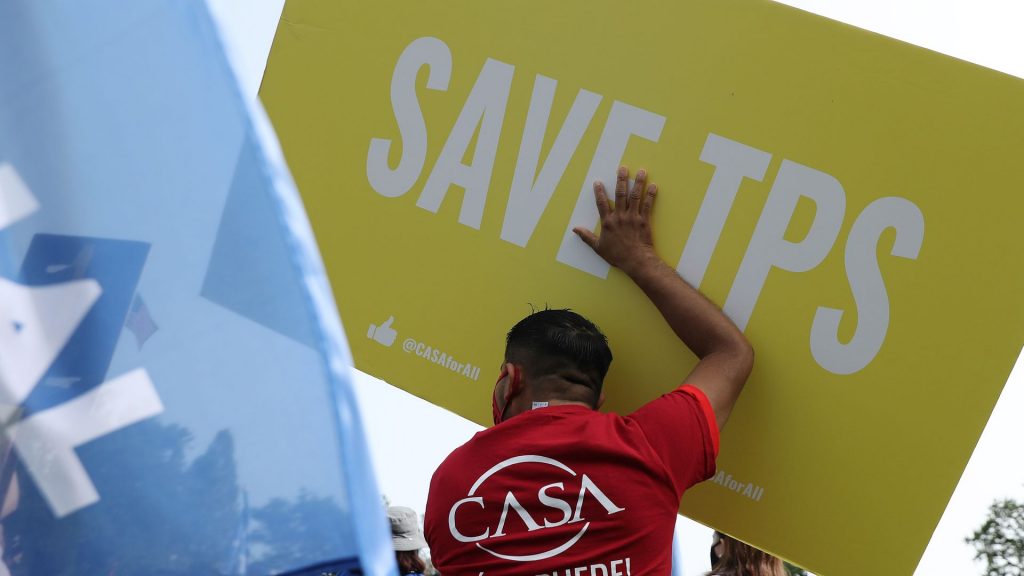Court allows Trump to end deportation protections for thousands of migrants

On Wednesday, a federal appeals court sided with the Trump administration in its attempt to end protections for thousands of immigrants from Central America. The ruling puts a lower court’s order preserving Temporary Protected Status for about 60,000 migrants.
The three-member panel of judges on the 9th U.S. Circuit Court ruled unanimously but didn’t give a rationale for their decision. The judges were nominated by former Presidents Bill Clinton and George W. Bush and by President Donald Trump during his first term.
Who does this order affect?
The judges’ decision will impact migrants from Nicaragua, Honduras and Nepal who rely on TPS. The program offers temporary deportation relief and work permits for individuals from countries impacted by war or natural disasters. The secretary of the Department of Homeland Security decides who is granted protection.
Immigrant rights supporters told The Associated Press TPS holders from Nepal lived in the U.S. for more than a decade after an earthquake killed more than 7,000 people in the country. Migrants from Nicaragua and Honduras have lived in the country for the last 26 years, following Hurricane Mitch in 1998.
“The Trump administration is systematically de-documenting immigrants who have lived lawfully in this country for decades, raising U.S.-citizen children, starting businesses, and contributing to their communities,” attorney Jessica Bansal told the AP in a statement.
In July, DHS Secretary Kristi Noem ordered the end of TPS for 51,000 Hondurans and 3,000 Nicaraguans, saying the countries had recovered enough from the hurricane. Those protections are set to expire on Sept. 8. TPS was expected to end for 7,000 Nepalis on Aug. 5.
However, U.S. District Judge Trina L. Thompson of San Francisco said the administration had not given an “objective review” of the conditions in those countries. DHS spokesperson Tricia McLaughlin said TPS was never meant to be a “de-facto asylum program” and that previous administrations have used it like one.
Noem said the U.S. would offer a plane ticket to those who self-deport immediately, along with a $1,000 “exit bonus.”
The Trump administration previously ended TPS for more than a million immigrants.
What happens next?
Honduras Deputy Foreign Minister Gerardo Torres told the AP that the decision was “unfortunate.” He said his government hopes to “buy time” for Hondurans with temporary status so they can find other ways to legally stay in the U.S.
“We’re going to wait to see what the National TPS Alliance decides. It’s possible the case could be elevated to the United States Supreme Court, but we have to wait,” he told the AP.





